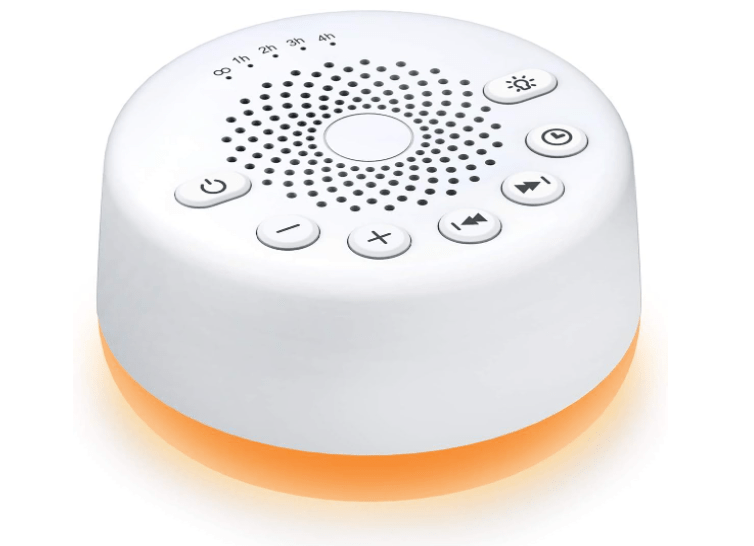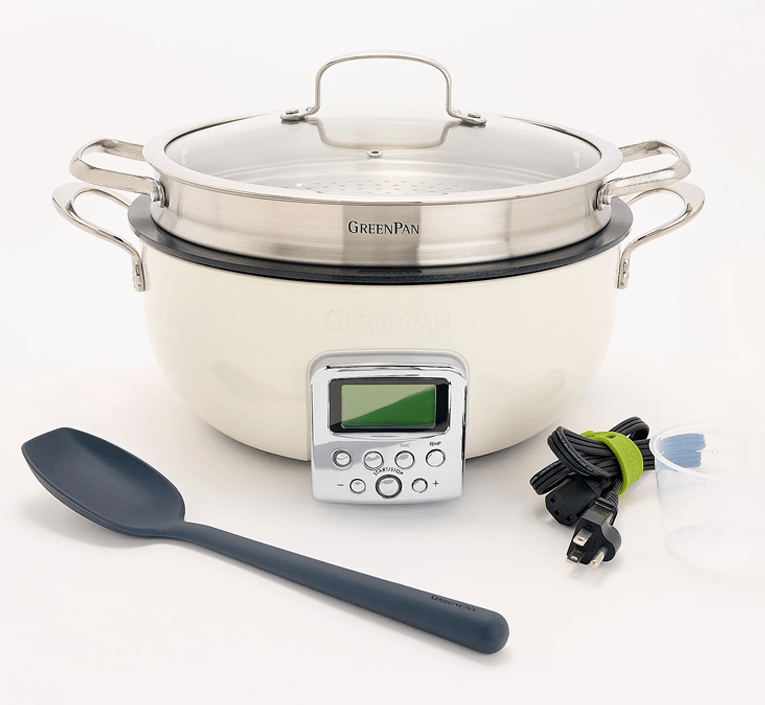I’m a light sleeper. If light peeks under my bedroom door while I’m trying to sleep, or I hear my partner and his friends playing video games in the other room late at night, I end up tossing and turning, growing more frustrated each minute I’m not able to doze off. Falling asleep through noise and light is no easy task.
From conversations with friends, I realize I’m not alone. Plenty of people I know have trouble falling asleep when exposed to noise or light they’re not used to. Things like traveling, moving into a shared living space, or even bunking with friends who sleep with the lights on can throw off slumber quality.
The good news? You can “train” your body to sleep through it all, or at least reduce its effect on your sleep quality. But it might not be as simple as stuffing ear plugs into your ears or slipping on an eye mask.
Ahead, three sleep psychologists share how to sleep through noise and light—and why some people are more sensitive to these disruptions than others.
Why are some people more sensitive to noise and light when falling asleep?
Even as you’re falling asleep, your brain is hardwired to constantly scan your environment for potential threats, says Sarah Silverman, PsyD, a sleep psychologist and holistic sleep specialist in Orlando, Florida. Your brain’s goal is to make sure you feel safe in your sleep environment.
“Any noise or light that you’re unfamiliar with is going to cue your body to wake up from sleep,” especially during the light sleep phase, says Christina Garcia, PhD, DBSM, assistant clinical professor of psychiatry at the University of Arizona and owner of the Center for Sleep and Psychological Wellness. Noise that’s unpredictable is often what triggers the “alerting” part of your brain—such as loud laughter or shouting, a barking dog, or a roommate rummaging around after getting back from a night out.
In most cases, noise or light isn’t a threat to your safety, but your brain still treats it as such, demanding you make a decision on what to do about it, says Brad Wolgast, PhD, CBSM, a licensed psychologist board-certified in behavior sleep medicine in Media, Pennsylvania.
While this biological process is true for us all, there are some people whose brains seem hyper-aware of external stimuli. According to Dr. Silverman, there’s a potential evolutionary reason for this: Thousands of years ago, “there needed to be a variation in light sleepers vs. heavy sleepers among our ancestors, because there needed to be individuals who could wake up from sleep very easily at night, in order to protect the tribe and keep everybody safe.”
Fast-forward to modern times, and things like anxiety and stress are what typically contribute to that hyper-awareness or vigilance, per the Cleveland Clinic. “On average, [people with anxiety] are more likely to scan their environment for any danger, and that applies when they’re trying to fall asleep, too,” says Dr. Garcia. She says they may also wake up from sleep more easily. And people with chronic insomnia are also more easily disrupted by noise and light, per a January 2009 study in Sleep Medicine Clinics.
How to sleep through noise and light disruptions
All that said, is it possible to get better at sleeping in bright environments and around noise if you’re a light sleeper? According to all three specialists, it is. Here’s their advice on how to do so:
1. Treat both like a non-issue
If you’re keyed up before bed, any extra noise and light can feel overwhelming. But treating both like a “non-issue” (i.e., no big deal) can signal to your brain that you’re safe. “Maybe the tiny noise that wouldn’t have bothered you is now built up because of your emotional reaction,” says Dr. Garcia. “If you’re stressed about it, or angry, sleep is probably not going to show up.”
Here’s what to do: First, notice your emotional response without any judgment. Then, try a calming technique that works for you, like deep breathing, clenching and releasing your fists, or getting out of bed and “shaking it out” or moving around, per Dr. Garcia.
After that, Dr. Wolgast recommends saying a few reminders to yourself, to change how you think about the noise and light. Some examples include: “It’s fine.” “It’s not an issue.” “I’m okay.” “I’m safe.”
2. Let go of the belief that you need a perfect environment to sleep
Maybe you, like me, believe a room needs to be completely dark and quiet for you to fall asleep. But according to sleep psychologists, this mindset can ironically make it harder for you to sleep when conditions aren’t “perfect.”
“Having a rigid set of rules around sleep, that you need a perfect sleep environment that is dark and quiet, that you have to follow all of the sleep hygiene rules, oftentimes creates this to-do list before bed, and your brain thinks you have to do all these things to achieve perfect sleep,” says Dr. Silverman. Sometimes, that backfires for people.
Dr. Wolgast suggests taking some of the pressure off. Remind yourself that “sleep is a drive, just like thirst and hunger. You go without it long enough, your body is going to demand it, and eventually sleep will come,” he adds.
3. Remind your
Recommended Story For You :

The alpine secret for healthy weight loss

The Most Potent Fast-Acting Formula For Incinerating Stubborn Fat

Real Cortexi Users Real Life‑Changing Results

This Cold Drink Might Trigger Your Prostate

Red Boost is a powerful new formula for boosting male sexual health.

Everything you eat or drink eventually reaches your liver for processing.

Brand New Probiotics Specially Designed For The Health Of Your Teeth And Gums

Empowering You to Take Control of Your Blood Sugar Health!

Scientists Finally Discover the Root Cause of Belly Fat and Unexplained Weight Gain




